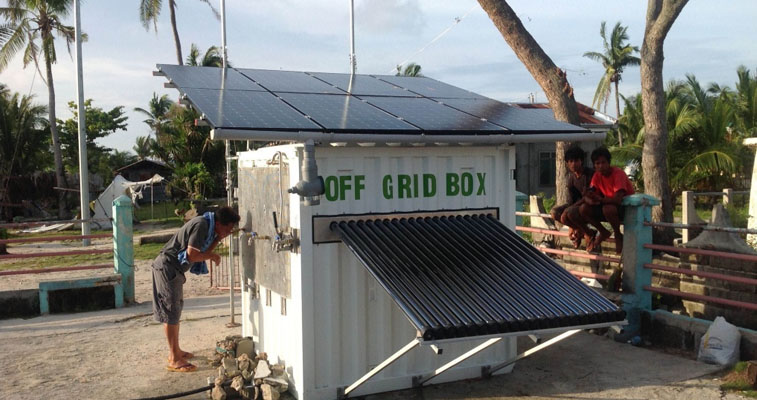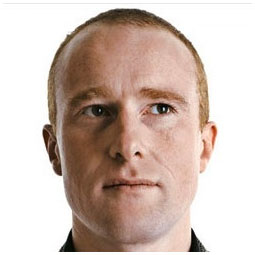Relationships are hard work.
And like all relationships, a mentoring relationship takes time to develop. It starts with the initial seed of connection, a shared interest, admiration for someone’s perspective and experience. Over time, through careful cultivation, the relationship grows into one of trust and mutual benefit. It doesn’t happen overnight; instead, finding a great mentor requires patience and deep personal commitment.
After a first date, you wouldn’t just show up with a small suitcase in hand expecting your own drawer. Whoa, no. Just the same, you wouldn’t walk up to an seasoned successful person you admire, yet have no relationship with and ask them to be your mentor. It’s just too soon.
Too often, people approach finding a mentor as an item to be ticked off a list. Business license… check. Sign lease agreement… check. Get mentor… check. Wrong. Be patient. Invest in your relationship. Watch it grow.
Let’s look at some other rules of mentor-finding:
1. Be Clear on Your Goals
Before you can find someone to help you, you’ve got to know exactly what it is you need help with. It’s not enough to say, “I want someone to help me advance my career.” That’s pretty much a given. What specifically do you need help with? For instance, you may want or need to acquire a new skill, or sharpen your ability to manage up. Now you have clarified the qualifications you want your mentor to have and, when reaching out to them, you’ll be able to articulate why they’re compelling to you. Have an open conversation to be sure you’re clear on the time commitment, cadence of your meetings and what you each hope to achieve.
2. I Know What I Want, Now Where Do I Go?
Once you’ve identified your goals, you can start thinking about where to find a mentor. There are many different approaches, but the simplest way is to start with who you know. Look at your own network, and ask yourself is there someone you already currently have a relationship with that could fit the bill? Go to your leader (or another leader whose opinion you trust) and ask for their input. Share your goals and what you are looking for, maybe there is a member on the leadership team where you work that has experience in a particular area in which you want to grow. Maybe they know someone in their network that has a role similar to one you are aspiring to that is a trusted resource, or former peer.
Don’t see what you are looking for? Get out of your comfort zone - go to events, engage in leadership programs, meetups, or attend fireside chats. Read local publications, perusing Medium, and pay attention to the talks, the blogs of people whose opinion resonates with you. If you are drawn to someone, reach out. Let them know specifically what connected for you. Ask follow up questions that may be lingering. There are many places and approaches to find a mentor, what is most important is to get out there.
In a recent conversation with Intelligent.ly, Katie Burke, HubSpot CPO, shared that for her most mentorship relationships have been organic and stem from having a growth mindset.
“Most of [my mentors] have been organic in my case. When I started my career in DC, I worked for Howard Wolfson, who now works for Mike Bloomberg and previously ran Senator Clinton’s communications for her campaign. Howard is obsessed with politics and music and taught me the importance of being willing to think and act unconventionally — he was always willing to zig when other people zagged, and I learned a considerable amount from that. Overall, I think people overthink formal mentorships — if you have the attitude that you can and should learn informally from anyone you meet then complement that with strategic advice from people you admire, I think you’ll have the insight, inspiration, and feedback you need to grow.”
3. Focus on the Person – NOT Their Title
When considering a mentor, don’t focus on “name brand”––look for quality. You’re interested in the value a mentor can bring to your personal career growth. You don’t necessarily need someone who has followed the exact same career path you’re on, but you do want to find someone has career experience relevant to your own.
Identify a person who you connect with, someone you trust. Look for qualities like honesty and transparency. Seek out someone with a strong work ethic and real leadership skills. Identify someone that has characteristics that you admire, would like to emulate, or even better, find someone with a completely different approach that complements your own frame of thinking.
4. If You’re Gonna Take – You’d Better Give
Have you ever had one of those coworkers who helps themselves to copious amounts of candy from your candy jar, but they NEVER buy you a bag to replace what they’ve eaten? Don’t be that person.
Like any other relationship, the one you have with your mentor should be about give and take (Adam Grant wrote a great book on the concept of reciprocity). It’s important to identify what they most value, so come out and ask. Ask your mentor why they’re interested in mentoring––what’s the value the hope to derive from the relationship? For instance, if you’re building a relationship with someone who’s more seasoned, they may be able to get insights from you about new approaches or technologies, or the perspective of someone with a different point of view. They might just be interested in mentoring someone they feel is a next-generation leader in their industry, passing the baton. Always come right out and ask, “What can I do for you?”
5. Sealing the Deal
Remember, on that first meeting (maybe not even the second, third, or seventh) you’re not going to ask them to be your mentor. You’re going to ask for specific advice. You’re also going to inquire whether it would be okay to be in touch with them in the future. After investing some time, when you feel there is mutual respect, caring and trust, then you can pop the question. Or not. While you don’t need a verbal commitment to consider someone a mentor, if you are looking for a more formal mentor-mentee relationship then you need to align your expectations. Share the value you’ve received - you have a relationship, so it’s not going to come as a shock to them. But be clear on what you are looking for - is it a quarterly breakfast, an hour Skype chat each month, the flexibility to reach out during sticky situations? Be specific.
The final rule of engagement – be patient. There’s no Tinder for mentors for a good reason (that would just be weird) – because this is a relationship that’s cultivated and takes time - don’t expect instant gratification. Invest some time and don’t come on too strong. Eventually, you’ll end up with a relationship that can offer priceless insights and catapult your career.
Gabriela McManus is Executive Director at Intelligent.ly. Follow her on Twitter: @GabMcM




